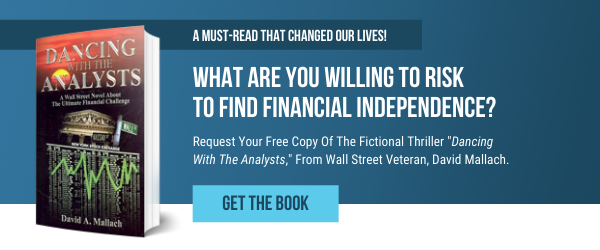“The market is rigged, the market is rigged,” so people say. It’s been a hot topic over the past ten years, although even ten years ago it wasn’t necessarily a new idea.
I believe it was the financial journalist and author, Michael Lewis (who wrote The Flashboys and The Big Short, among many other bestsellers), who brought the notion of the rigged market into mainstream conversation. In the book The Flash Boys, Lewis put forth that trading firms, the market making firms responsible for trading on behalf of large institutions, were using technology to front run their trades.
This technological advantage gives them an advantage of milliseconds in the execution of trades. Amplified by the volume of trading in which they engage, it results in significant financial gains. Consequently, the market being rigged in favor of certain institutional players became a popular topic of discussion.
Is the Stock Market Rigged?
Short answer: Sure, yes, absolutely in my view.
I think it is impossible for it not to be rigged because there will always be things that some people (not all people) will know and will be willing to act upon.
Are there people with inside information able to act without being caught? I think the answer here, again, is yes. My mentor, David, and I have seen studies that suggest a link between a certain percentage of the climb in a stock price to insider information.
Insider Information
Insider trading occurs when an individual uses information not available to the public to make trade decisions.
Insider Trading Example
Closer to home, I’m reminded of something we observed years ago at our firm.
At the time, we held within our Strategy a company called Virgin America. Founded by the billionaire Richard Branson, this airline would eventually be purchased by Alaska Airlines. The acquisition was great news for us because we owned Virgin America, and when the purchase was announced the stock jumped by over 40% that day. It was a huge win.
We’ve experienced similar things since then, but that jump was one of the better one-day stock moves we have seen. What was interesting about it is that looking back in our records, we can see that we had owned the stock for about a year before the sale. We also noticed that in the six months leading up to the acquisition announcement the stock had risen by roughly 30 to 35%.
This is the kind of thing that makes me wonder, well, was there any news, like super positive earnings results, that was carrying certain companies upward and Virgin America alongside it? Was there something going on in the airline sector that would have caused Virgin America and others to move, regardless of the pending acquisition?
We looked back and we really can’t find any information that points in that direction. A valid hypothesis would be that a certain amount of that 35% percent runup in the stock during the six months leading to the sale, is most likely connected to individuals acting out of inside information.
Do Rigged Markets Impact Long-Term Investors?
Why hypothesize? I don't think it's even up for debate that the market is rigged. Let’s just say it is.
What I'll also say is that as individual long-term investors, we don't care if the market is rigged or not. We simply don't care. And the reason that we don't care is because it doesn't affect us. We are not traders. We don’t care about short wires, millisecond execution advantages, and micro-fractions of dollars that end up making a difference because of the volumes in which we transact. No. As long-term investors, when we make a trade into a company, we're looking to hold that company for as long as the analysts continue to raise earnings estimates.
Our hope is to hold on for as long as that is true so that we may benefit from the appreciation of the stock over time. The fact that along the way other investors, institutional and otherwise, are trading in and out of that security multiple times and legally or illegally gaining a fraction of a penny on each transaction, doesn’t matter to us one bit. Ultimately the price of the stock is not going to lie. In the long run, the price of the stock will reflect a multiple of whatever the companies’ earnings turn out to be.
The takeaway for us investors and for the folks who are worried that people are gaming the system is that this should not be the focus of our attention.
As long-term investors, we're looking to own a company today in which the expectations of earnings by our analysts continue to increase not once, but numerous times in the future. Now, if we were traders, and also if we were not focused on fundamentals, if we were not focused on the future of a company but focused solely on the price of the stock and its ups and downs – day-to-day, hour-by-hour – then the argument can be absolutely made that so-called ‘rigged markets’ were eating into our potential profits.
The goal is to own a company in which the expectations of earnings by our analysts continue to increase not once, but numerous times in the future.
Long-Term vs Short-Term Investment Strategies
Long-term investors know that the market is entirely unpredictable on a day-to-day and month-to-month basis. On a long-term basis, though, it is entirely predictable.
If you look back historically, going back to the end of World War II, you will see that since that time, the earnings of companies in the S&P 500 have risen by approximately 70 times. Wouldn’t you know it, the price of the S&P 500 (meaning the aggregate sum of all the stocks it represents) has also risen 70 times over those decades.
That tells me that while the stock market in the shorter term oscillates wildly, and can be very volatile, ultimately the stock price ends up being a pure reflection of what the company earns.
The Real Concern: Investing Without a Strategy
What people need to be worried about is being invested in the markets without a viable strategy.
You cannot complain about losing money in the markets if you don't have a process or strategy that can create success. You can sit there and complain all day about institutional players affecting your returns, but let's take a step back for a second. Do you actually have a time-tested process that's been proven to be successful? As investors, we must have the humility to acknowledge that our losing money is not necessarily somebody else's fault.
Certainly, there's shady business out there. We need regulations and oversight to ensure that institutions (or others) aren’t overstepping to the detriment of individual investors. But I'm also going to ask you to consider this issue from another angle.
Let me ask you, have you ever driven your car over the posted speed limit of a particular road? You may protest that this is an unfair comparison to make because we are talking about large amounts of money here, not speed limits. I’m simply trying to point out that as human beings we are self-interested. It’s part of our wiring. We put our interests ahead of others, even though some of us attempt to be mindful and present to our nature.
If the opportunity exists to have an advantage, you know that someone (if perhaps not you) will go for it. You don’t need to look any farther than the time you were late for your son or daughter’s baseball game. You may have run over your own grandmother to get those kids to the game on time. I plead guilty to this. I’ve done it when I wasn’t being present to my behavior and its potential negative impact on others.
So, the people who are shocked that someone is gaming the system, can they also not believe that someone was going 15 miles over the speed limit? Would you now believe that someone bought stock on insider information? I’m not condoning this behavior, nor do we do it at our firm, but it would be naïve to pretend it’s not happening.
How Can We Put Ourselves In A Better Financial Position?
What’s the answer? How do we get ourselves out of this?
I don’t think we can undo the human tendency to want to get ahead. But what we can do is take responsibility for how we invest our money. Instead of complaining about all the things that are happening to us, instead of seeing ourselves as victims of the stock market, we need to figure out all the things we can do to put ourselves in a better position. That begins with having a strategy that is reasonable, realistic, and time-tested.
Let’s face it, isn’t just about everything in life rigged? What are we to do? Quit? No. We recognize that we have a choice. We open our eyes, we look at our situation realistically, and we make better choices. We choose not to gamble on our future. We choose not to fantasize about miracles. We choose not to compromise our vision or our ethics.
We choose our way to a better future.
Ben Beck is Managing Partner & Chief Investment Officer at Beck Bode, a deliberately different wealth management firm with a unique view on investing, business and life.

 Benjamin Beck, CFP®
Benjamin Beck, CFP®